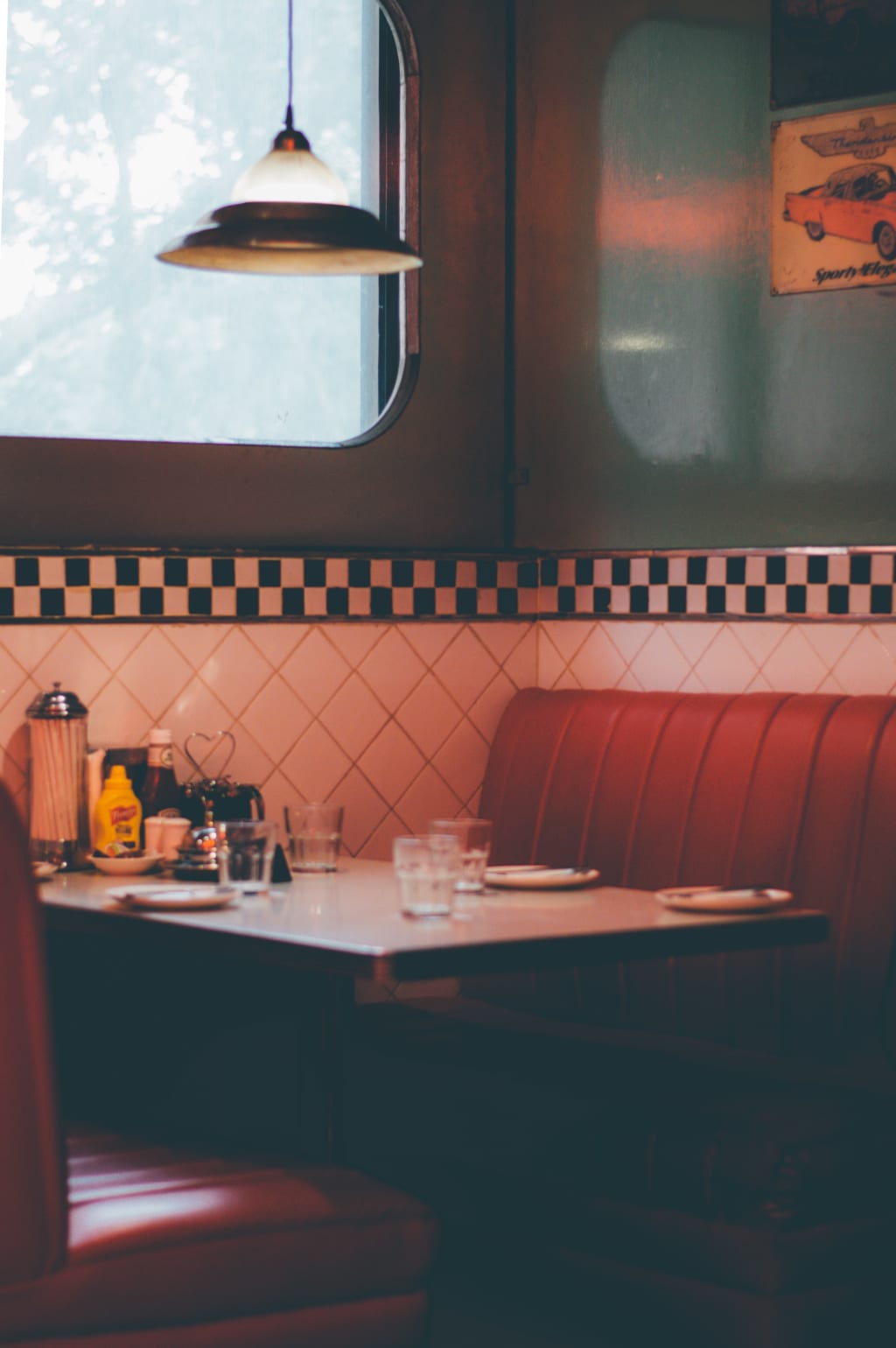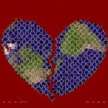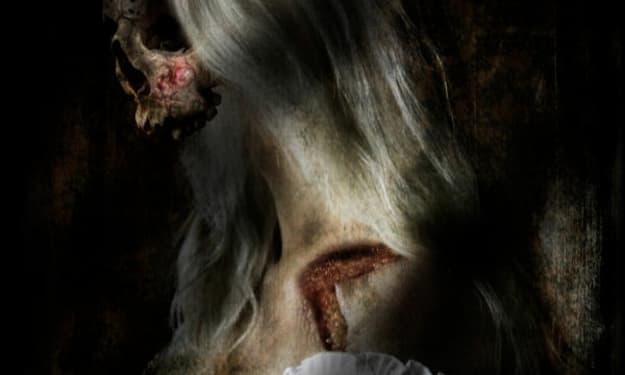The Fast Pass Diner
Never fall asleep at an all-night diner.

Never fall asleep in an all-night diner.
The waitresses might not bother you—but when you wake up with sugar packets stuck to your forehead and a lap full of coffee, you might wish they had. That was where I found myself last Thursday, after a long shift in the ambulance.
It was a rough one, too. Don’t get me wrong—EMT work isn’t for the faint-hearted. Most shifts are rough one way or another, but this was bad. Capital B, A, D, BAD. I’m not going to sit here and tell you all the reasons it was bad, because that’s not the point.
The point is that when my shift ended, I needed comfort food and coffee or I was never going to make it home in one piece. It was a little after three in the morning and everything was closed—everything except this little diner across the street from the hospital. I’d never noticed it before. Figured it must be new, though it didn’t look it on the outside.
Didn’t look it on the inside, either. It was comfortably worn in the homey diner kind of way. There was nothing particularly special about it—booths, tables, the smell of coffee permeating the atmosphere—you know, the usual. A young, blonde hostess was leaning against the podium, looking bored and excessively pale. Night shift will do that to you. She was zoning out, so I cleared my throat and apparently scared the bejeezus out of her.
“Oh! Um. Table for one?” She stammered.
“Yeah.”
I didn’t think I looked that frightening—I’d changed out of my uniform and washed all the blood off, after all—but death has a way of touching those it’s closest to, and I’d seen a lot of it that day.
She brought me my menu and a cup of coffee, then scurried away, all the while shooting glances at me. I shrugged and drank my coffee.
I’d only taken a couple sips when my head started spinning. I leaned my forehead on my palm for just a second, just long enough to pull myself together—but sleep had other ideas. That was how I ended up with my face in the sugar and my lap full of coffee when I was startled awake by the girl sliding into the booth across from me, cradling a baby tight to her chest.
“What are you doing here?” She demanded loudly. I lurched, sloshing the coffee around. It had cooled, but that didn’t make it any more comfortable. I glared at her.
“Do I know you?”
She did look vaguely familiar. Her face was pleasantly round, and she had her hair pulled up in puffs on either side of her head. Her eyes weren’t true brown, but you couldn’t really call them grey or green either. I guess they were hazel, but that doesn’t seem like the right word. Hinting, her eyes were hinting at color without commitment. I would have remembered those eyes, wouldn’t I?
“Six forty-eight P.M.,” she said expectantly.
I blinked at her. The time sounded significant in some way, like I’d heard it recently, but I couldn’t connect it to anything specific. Like I said, it had been a long day.
The girl sighed and turned her baby to face me. It was a premature newborn, its face perfect and covered with light fuzz, not large enough to have been smushed by its birth. Its eyes were squeezed shut. They’d never opened. My gut turned over once and clenched. I’d seen that baby before. I looked up at the girl again and squinted.
It’s funny how your brain stutters when it’s trying to process an impossibility, like it sees what’s true and acknowledges it, then goes through a series of denials, frantically grasping for other explanations before settling on the impossible one. There’s a sort of existential horror that goes along with it—even if you aren’t talking about dead people.
“Six forty-eight P.M.,” I repeated. “Time of death. Angela Smith, age twenty-two. Baby Smith, age one minute twenty-eight seconds. Cause of death: severe blunt-force trauma to the head and abdomen, inducing premature labor and uncontrollable bleeding.”
She nodded. “My ex-husband ran me over with his car. I watched you cry for me and my son.”
“You’re dead,” I said, like an idiot.
She nodded again, then pointed across the restaurant at a sweet old couple. “Look at the woman closely,” she said.
I felt like I knew where this was going and decided that I was dreaming. My heart was a rock in my chest, one that cracked when I looked at the woman. “Emma Jean Watson. Eighty-two. Had a stroke at her birthday dinner. Died before we reached the hospital.”
“There are more,” Angela said softly. “Everybody who died today. Well, everybody who died around here, I guess. I figure there’s got to be hubs like this all over the world or it would be completely swamped all the time.”
The waitress swung around and smiled at me apologetically. “Here you go, sugar. I would have woken you up, but you looked like you needed it.” She slid a fresh cup of coffee onto the table in front of me, then gave one to Angela.
I looked at the coffee suspiciously, then transferred that suspicious glance to the waitress, who shook her head.
“My mistake,” she said. “Couldn’t tell at first, with you. But that’s the right kind.” She nodded at Angela’s cup. “I gave you the other kind first.”
“Other kind--?”
“Sure, the kind that helps with the transition. You’re not quite there yet. Happens sometimes—not a lot, but sometimes. The living stumble in here occasionally. We can accommodate as long as we know, but nobody tells us what we need to know unless they already know what we need them not to know, you know?”
My head was spinning again. I took a tentative sip from my cup and tasted the difference instantly. The last cup had tasted more like the dream of coffee or the smell of it. This was real and hot and bolstering.
“If you want the other, all you have to do is ask,” she said as she hurried away. “No judgment from me!”
I blinked after her, then turned to Angela. “Did she just offer me suicide?”
Angela frowned. “I think she did.” Then she shrugged deeply. “I don’t know. This is my first time here. I’ve been following you all day.”
“Why?”
She smiled a little sadly and nodded at the booth behind me. “Same reason they have.”
I turned around and found two boys staring at me. Twelve and thirteen, respectively. They’d been racing their bikes downtown. The bus didn’t even see them coming. It was a relief, somehow, to see their faces intact, even if it did mean that they were dead. I waved at them awkwardly and they waved back.
Angela slid the menu at me, the one I hadn’t bothered to read before passing out. She pointed at the small paragraph at the top.
“Read that,” she said.
I did. “Welcome to Fast Pass diner! Our condolences to your living loved ones. We invite you to relax, have a cup of coffee, and order a bite to eat. Your loved ones on this side will be with you shortly.”
I stared at the menu, then snorted. “Nice scam,” I said. “How much are they charging, anyway?”
I opened the menu contemptuously. Someone was screwing with my head, that was for sure. The meals were all my favorites, plus a few things I’d always wanted to try but never worked up the nerve. Each and every item cost three dollars and twenty-seven cents—which also happened to be the amount of cash I had in my pocket.
Glaring, I whipped the menu around and pointed. “What’s the top dish?” I asked Angela.
She looked at me like I was stupid. “Chicken fried steak,” she said.
I shook my head. “No, no, no it’s not, that’s a sausage calzone. How much does it cost?”
She frowned. “Nothing. None of this costs anything, see? All zeros. They don’t exactly expect you to bring cash with you when you die, I guess.”
Maybe she was screwing with me. I whirled around to demand the same answers from the boys behind me, but in the middle of the motion, I froze. A tall, older man had approached their table and the boys had tackled him in tearful embraces. He looked over at me.
“Jim! Hey, boy, nice to see you again. Thanks for taking care of my grandkids for me. I’ve missed the little suckers.” He ruffled their hair and gently guided them back to their seats with promises of hot-fudge sundaes.
I slowly turned back around to face Angela. “Who’s that?” She asked.
“Gordon Fry,” I said huskily. “The first patient I ever lost. I never forgot his face. I see it every time I close my eyes. I messed up—”
“Hold on, boys,” Gordon said. He came around to my table and sat beside me, shoving me over with his bony hip. “Did I hear you right, boy? You say you messed up?”
I swallowed hard. I was shaking from head to toe. This was my nightmare—facing down all the people I ever failed. Gordon was the first, and the worst, of my failures. “Yes sir,” I said. “I made a rookie mistake. We couldn’t stabilize you in time because of me. You died—you didn’t have to die.”
He grinned at me. “Yeah, I did. Could’ve been there, could’ve been somewhere else. But I was gonna die. You know what you did?”
I forced a breath past the tightness in my chest. I shook my head.
“You made the pain stop,” Gordon said gently. “You made it easy for me to go. You got me here in time to meet my grandkids—how scared do you think they’d be if they showed up and no one came to meet them? Trust and believe, boy, they wouldn’t have wanted to have my father meet them, no sir.”
Gordon clapped a hand on my shoulder. “These things happen, son. Sometimes, if we’re lucky, they happen in the right order.”
He looked across the table at Angela. “You got family comin’, miss?”
She shook her head. “Nobody I know.”
“How do you feel about a hot fudge sundae with me and mine? Then if nobody comes, you can go ahead and cross right along with us.”
She beamed at him. “I’d like that.”
She slid out of the booth and Gordon turned to me. “You better settle your tab and take a hike before you start getting ideas about that special coffee. People need you, boy. Just like they need this place.”
Then he clapped my shoulder once more and went back to his boys.
I don’t know if it was a dream or not, but I haven’t been back since. Once in a while, after a particularly hard shift, I’ll think I see something out of the corner of my eye, a squat little diner between the buildings. I don’t look for it too hard. I’m not ready to eat the food just yet.
I haven’t had anybody die on me since Thursday—but now I know, the next time someone’s bleeding out in my arms and they ask me the question that tears me apart and keeps me up nights—now I know what to say.
Yes, you will be okay. Trust me. You’ll be having dinner with your family before you know it.
About the Creator
Enjoyed the story? Support the Creator.
Subscribe for free to receive all their stories in your feed. You could also pledge your support or give them a one-off tip, letting them know you appreciate their work.






Comments
There are no comments for this story
Be the first to respond and start the conversation.